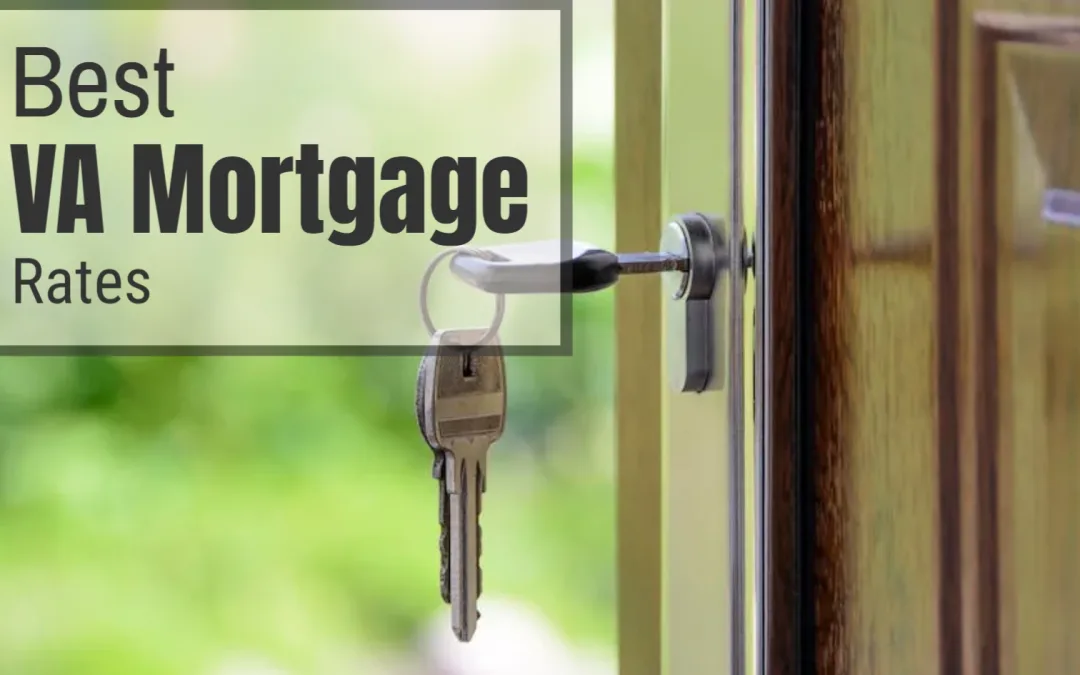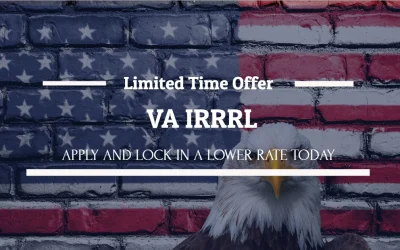VA mortgages are home loans specifically designed for military members and veterans. These mortgages offer a range of benefits that make homeownership more accessible and affordable for those who have served in the armed forces. We will cover the role of credit scores in VA mortgage rates, tips for improving your credit score before applying for a VA mortgage, and the importance of working with a reputable mortgage broker. Finally, we will delve into comparison shopping for VA mortgage rates, negotiating with lenders, and the pros and cons of fixed-rate vs. adjustable-rate VA mortgages.
Factors That Affect VA Mortgage Rates
Several factors can influence VA mortgage rates. Understanding these factors can help borrowers make informed decisions and potentially secure better rates.
Market conditions play a significant role in determining mortgage rates. When the economy is strong, and there is high demand for loans, interest rates tend to rise. Conversely, when the economy is weak and there is less loan demand, interest rates tend to fall. Keeping an eye on market conditions can help borrowers time their mortgage applications to take advantage of lower rates. Also, when inflation rises or maintains higher than the Federal Reserves target, interest rates tend to stay higher.
Credit score is another important factor that affects mortgage rates. Lenders use credit scores to assess a borrower’s creditworthiness and determine the level of risk they pose. Borrowers with higher credit scores are generally offered lower interest rates, while those with lower credit scores may be offered higher rates. Maintaining a good credit score is crucial for securing the best mortgage rates.
The loan term also plays a role in determining mortgage rates. Generally, shorter loan terms come with lower interest rates compared to longer loan terms. This is because lenders are taking on less risk with shorter-term loans. Borrowers who can afford higher monthly payments may want to consider a shorter loan term to take advantage of lower rates.
The type of property being financed can also impact mortgage rates. Lenders may offer different rates for single-family homes, condominiums, or multi-unit properties. Single-family homes typically have lower rates than other types of properties.
How to Qualify for the Best VA Mortgage Rates
While there are factors that borrowers cannot control, such as market conditions, there are steps they can take to qualify for the best VA mortgage rates.
Maintaining a good credit score is essential for securing favorable mortgage rates. Borrowers should strive to pay their bills on time, keep their credit card balances low, and avoid opening new credit accounts before applying for a VA mortgage. These actions can help improve their credit score and increase their chances of qualifying for better rates.
Working with a VA mortgage broker can be a big benefit when looking for the best rates. Different lenders may offer different rates and fees, and the broker can look at multiple lenders to compare.
Choosing a shorter loan term can also help borrowers qualify for better rates. As mentioned earlier, shorter-term loans generally come with lower interest rates. While this may result in higher monthly payments, it can save borrowers a significant amount of money over the life of the loan.
The Role of Credit Scores in VA Mortgage Rates
Credit scores play a crucial role in determining VA mortgage rates. Lenders use credit scores to assess a borrower’s creditworthiness and determine the level of risk they pose. Borrowers with higher credit scores are generally offered lower interest rates, while those with lower credit scores may be offered higher rates.
Credit scores are calculated based on several factors, including payment history, amounts owed, length of credit history, new credit accounts, and types of credit used. Payment history is the most significant factor, accounting for 35% of the credit score. This means consistently paying bills on time is crucial for maintaining a good credit score.
The impact of credit scores on interest rates can be significant. Even a small difference in credit score can result in a higher interest rate and thousands of dollars in additional interest payments over the life of the loan. For example, depending on the loan amount, a borrower with a 760 credit score could save thousands of dollars vs. a borrower with a 640 credit score.
The minimum credit score requirements for VA mortgages vary depending on the lender. While the VA does not set a minimum credit score requirement, most lenders have their own guidelines. Generally, borrowers with credit scores above 580 have a better chance of qualifying for a VA mortgage. However, borrowers with lower credit scores may still be able to secure a loan by providing additional documentation or making a larger down payment.
Tips for Improving Your Credit Score Before Applying for a VA Mortgage
Improving your credit score before applying for a VA mortgage can help you qualify for better rates and save money over the life of the loan. Here are some tips to help you improve your credit score:
1. Pay bills on time: Payment history is the most significant factor in calculating your credit score. Make sure to pay all of your bills on time, including credit card payments, utility bills, and loan payments. Set up automatic payments or reminders to ensure you never miss a payment.
2. Reduce credit card balances: The amounts owed on your credit cards also play a significant role in determining your credit score. Try to keep your credit card balances below 20% of your available credit limit. Paying down your balances can help improve your credit score.
3. Check credit reports for errors: Errors on your credit report can negatively impact your credit score. Regularly check your credit reports from the three major credit bureaus (Equifax, Experian, and TransUnion) and dispute any errors you find. Correcting mistakes can help improve your credit score.
4. Avoid opening new credit accounts: Opening new credit accounts can temporarily lower your credit score. Avoid opening new credit cards or taking out new loans before applying for a VA mortgage. Instead, focus on maintaining and improving your existing credit accounts.
Shopping for VA Mortgage Rates: What to Look For
When shopping for VA mortgage rates, it is important to consider several factors beyond just the interest rate. Here are some things to look for when comparing lenders:
1. Interest rates and fees: The interest rate is an essential factor, but it is not the only one to consider. Also, pay attention to any fees associated with the loan, such as origination fees or closing costs. These fees can vary significantly between lenders and impact the loan’s overall cost. At Capital City Mortgage, we don’t charge a processing, underwriting, or origination fee.
2. Loan terms and options: Different lenders may offer different loan terms and options. Consider whether you want a fixed-rate or adjustable-rate mortgage, as well as the length of the loan term. Some lenders may also offer special programs or incentives for military members and veterans, so be sure to inquire about these options.
3. Customer service and reputation: It is important to work with a lender that provides excellent customer service and has a good reputation. A reputable lender will be responsive, transparent, and willing to answer any questions you may have.
The Importance of Working with a Reputable VA Mortgage Lender
Working with a reputable VA mortgage lender is crucial for a smooth and successful homebuying process. Here are some reasons why it is important to choose a reputable lender:
1. Knowledge and expertise: A reputable lender will have extensive knowledge and expertise in VA mortgages. They will be familiar with the specific requirements and guidelines of the program, ensuring that you receive accurate information and guidance throughout the process.
2. Access to multiple loan options: Reputable lenders often have access to a wide range of loan options, allowing them to find the best fit for your specific needs and circumstances. They can help you navigate through the various loan programs and choose the one that is most advantageous for you.
3. Excellent customer service: A reputable lender will prioritize excellent customer service and strive to provide a positive experience for their clients. They will be responsive, transparent, and willing to answer any questions or concerns you may have.
4. Red flags to watch out for: Working with a reputable lender can help you avoid potential scams or predatory lending practices. Reputable lenders adhere to strict ethical standards and will not engage in practices that could harm borrowers.
The Pros and Cons of Fixed-Rate vs. Adjustable-Rate VA Mortgages
When choosing a VA home loan, borrowers can select either a fixed-rate or adjustable-rate mortgage. Each type has its own pros and cons, and it is crucial to understand them before making a decision.
A fixed-rate mortgage offers stability and predictability. The interest rate remains the same throughout the life of the loan, which means that monthly mortgage payments will also remain constant. This can make budgeting easier and provide peace of mind, knowing that your mortgage payment will not change.
On the other hand, an adjustable-rate mortgage (ARM) offers an initial fixed-rate period, typically 3, 5, 7, or 10 years, followed by periodic adjustments based on market conditions. During the fixed-rate period, the interest rate is normally lower compared to a fixed-rate mortgage. However, once the fixed-rate period ends, the interest rate can adjust annually, potentially resulting in higher monthly payments.
The choice between a fixed-rate and an adjustable-rate mortgage depends on your individual circumstances and preferences. If you value stability and predictability, a fixed-rate mortgage may be the better option. If you plan to sell or refinance the property before the fixed-rate period ends, an adjustable-rate mortgage may offer lower initial rates and potential savings.
Work with a mortgage broker
At Capital City Mortgage, our brokers leverage access to various lenders, offering insights into rate trends. We compare rates, tailor options to your needs, and streamline the application process. With our market expertise, we guide you through obstacles, providing valuable advice. Partner with us to save time, secure competitive rates, and save on your mortgage long-term.
VA IRRRL – Beat the market
Mortgage Rate Drop - 5.125% (5.291% APR)30-Year Fixed VA IRRRL720 Credit Score$300,000 Loan AmountAttention VA Loan Borrowers Are you currently paying an interest rate above 6.75% on your VA loan? If so, we have an incredible opportunity for you to lower your rate and...
Applying for a VA Loan: A Step-by-Step Guide
The VA home loan program is a valuable benefit offered to veterans and active-duty military personnel. It provides an opportunity for these individuals to become homeowners with favorable terms and conditions. One of the main advantages of a VA loan is that it does...
Understanding VA Loan Eligibility
Verifying VA loan eligibility is a key step in qualifying for a VA mortgage. VA loans, or Veterans Affairs loans, are mortgage loans guaranteed by the U.S. Department of Veterans Affairs. They are available to eligible veterans, active duty service members, and...




